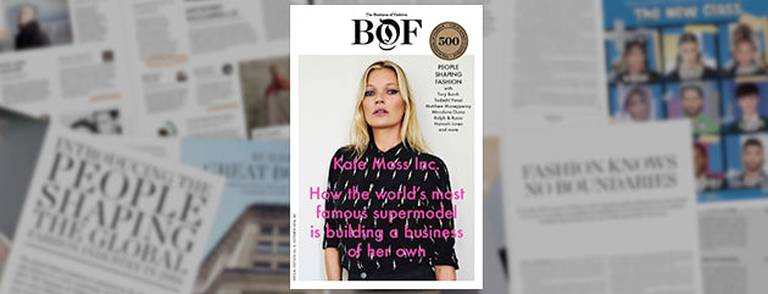Uniqlo Boss: ‘Without a Soul, a Company is Nothing’
TOKYO — In tiny dull sort, well packed onto blank, pocket-size white plastic playing cards are the “23 Management Principles” of Tadashi Yanai, Japan’s richest guy and the chairman, president and govt of Speedy Retailing, mother or father corporate of Uniqlo. Nowadays, the playing cards are carried by means of tens of hundreds of his staff far and wide the sector. However Yanai, 67, started writing the foundations when he was once in his 30s and the corporate — after known as Ogōri Shōji — had no longer even reached 1 billion yen in annual gross sales.
Through the years, he has methodically added to the listing, one after the other. And, in combination, the foundations mirror the underlying control philosophy that enabled the self-made entrepreneur to show a unmarried males’s tailoring store inherited from his father into a world casualwear immense with fiscal 2015 revenues of one.68 trillion yen (about $15.5 billion). Yanai has known as the foundations the “soul” of his corporate. “They are the company’s most important foundation, its judgment criteria and its spirit,” he advised schoolteacher Hirotaka Takeuchi for a 2012 Harvard Trade Faculty case on Speedy Retailing. “A soul is the most precious thing we have in life. Without a soul, a company or a person is nothing more than an empty shell.”
Yanai’s trail to good fortune was once anything else however immediately and his rules mirror the twists and turns of his progress. His father, Hitoshi Yanai, opened Ogōri Shōji within the business the city of Ube, Yamaguchi, on the southern tip of Japan’s Honshu Island in 1949. The industry was once included in 1963. However as he got here of pace, the younger Yanai had alternative issues on his thoughts.
“When I was a university student, I was against the Vietnam War. You know the hippie movement? That’s how I spent my youth,” Yanai finds, talking via a translator in his workplace at the thirty first flooring of the Tokyo Midtown Tower, house to Speedy Retailing’s world headquarters. “It was the first time in history that young people stood against the regime,” he continues. “Back in those days I was a very different person. ‘How can I spend my life fooling around rather than working?’ That was the single most important topic on my mind, because I didn’t want to work.”
Then college, on the other hand, Yanai quickly confronted the truth of getting to produce a dwelling. He spent a presen running for some other store prior to touchdown at his father’s tailoring industry in 1972. However his arrival induced the depart of six of the corporate’s seven staff. “Back in those days I was so arrogant and they all thought I would become the CEO of the company, so six out of seven decided to leave,” he recollects.
No one can are expecting the occasion. So why don’t you project out and manufacture one? Those that manufacture the occasion shall be blessed with good fortune.
Regardless of the exodus, Yanai put himself to the duty of managing the industry. “I needed to clean the store, brush the jackets, sourcing — I literally had to do everything myself because there was nobody else. It was a huge learning opportunity,” he recollects. Yanai temporarily learnt to place shoppers first. “Without customers, a business is not able to sustain itself,” he says matter-of-factly. “I also realised that I alone can only do so little,” he continues. As the corporate grew, it all started to seen extra shops and make use of extra folk. “That made me think: ‘Why do we work? Who are we?’ We needed some common threads, some principles, so we started to distribute these plastic cards.”
At one level, Yanai had puzzled if he would change into a lecturer, however nearest gave up the theory. “I was not a good student in the first place, so I thought teaching might not be the right thing. But I do enjoy writing,” he says. “These principles are written down because I want them to resonate with employees; because we need to choose each other: companies need to choose employees and employees need to chose employers.”
Yanai wrote the primary seven or 8 rules when his father was once nonetheless operating the corporate. He added the difference rules then 1984, when he took the reins as president, the similar presen the corporate opened its first Uniqlo collect — after known as “Unique Clothing Warehouse” — within the town of Hiroshima.
In keeping with Takeuchi’s case, Yanai’s promotion marked the beginning of the corporate’s speedy growth. Impressed by means of his travels to Europe and the USA, the place he found out extensive aimless attire chains like Benetton and Gap, Yanai noticed super attainable for Japan’s casualwear marketplace and prepared about evolving the people industry from suiting to aimless clothes, purchasing products in bulk at low price. He additionally noticed that the majority overseas style chains have been vertically built-in, taking keep watch over of all of the industry procedure from design to manufacturing to retail.
However it wasn’t till 1995 that Yanai started providing his first non-public label product. Via after, the corporate had change into a regional chain with a community of Uniqlo shops positioned in suburban grounds, the place hire was once low, and Yanai had renamed the industry Speedy Retailing, reflecting his trust in responding to shoppers and taking selections quicker than any alternative corporate. The transition from conventional reseller to SPA (Distinctiveness store of Personal label Attire) wasn’t simple, on the other hand, and Uniqlo was once compelled to shutter 3 of its unutilized non-public label strains quickly then they introduced.
However this was once most effective probably the most many demanding situations Yanai confronted. For extra subtle shoppers in and round Tokyo, Uniqlo was once evident as needless: a discounter promoting affordable clothes to the suburbs. Belief started to modify with the 1998 foundation of a three-storey collect within the hip Tokyo neighbourhood of Harajuku and the blockbuster good fortune of the corporate’s fleece jackets, which Takeuchi credit with converting Uniqlo’s symbol from “cheap and shoddy to cheap but good quality.” Gross sales clash report highs. However it didn’t closing, as consumers grew to become in opposition to the rising ubiquity of the emblem. In fiscal 2002, the corporate posted its first gross sales subside in 18 years.
To produce issues worse, Yanai’s first project out of doors Japan — a Uniqlo collect opened in 2001 within the Knightsbridge department of London, adopted by means of 20 extra in and across the town — was once a failure. Speedy Retailing’s first foray into China additionally did not get going. However Yanai remained undeterred. Over future, he got here to peer failure as a studying alternative and the seed of occasion good fortune, embracing the type of iterative manner and “fail fast, fail often” philosophy favoured by means of Silicon Valley. “The only solution is to keep changing yourself and keep challenging yourself,” he says.
2004 was once a pivotal presen for Speedy Retailing. No longer most effective did Yanai embark on what would change into a layout of in another country acquisitions, origination with Hyperlink World (now Hyperlink Concept Japan), the landlord of Andrew Rosen‘s recent label Concept, however he additionally started to park higher emphasis on property, putting commercials in main newspapers that integrated the word: “quality comes first, then price.” The similar presen, taking a cue from competition like Zara and H&M, Yanai opened Uniqlo’s first large-format collect in Osaka, environment the template for a slew of a hit flagships in world towns from Untouched York to Shanghai.
Nowadays, Speedy Retailing is a world immense, whose occasion is inextricably related to good fortune past its house nation of Japan, the place Uniqlo, which accounts for roughly 82 % of the corporate’s earnings, operates over 840 shops and has saturated the marketplace. Uniqlo has made substantial travel in Better China, the place it plans to develop its retail footprint to over 1,000 shops. However the logo’s subsidiary in the USA — the sector’s greatest retail marketplace — is underperforming. Yanai has vowed to “channel the expertise of the entire Fast Retailing group into making Uniqlo USA profitable and successful.” But to triumph over the sector out of doors Japan, Speedy Retailing will have to evolve from a Jap company with world achieve to a in point of fact world undertaking with upper cultural knowledge.
Yanai has no longer added a unutilized concept to his listing for some years. But if requested whether or not he was once taking into consideration an addition, he pauses and deals: “Connect yourself — because now everyone in the world is interconnected to each other.”
THE YANAI DOCTRINE
Tadashi Yanai’s 23 control rules distilled to 8 key subject matters.
1. Put Consumers First
Yanai’s primary control concept is: “Respond to customer needs and create new customers.” The sentiment is rooted in his deeply sensible enjoy operating a unmarried collect when he first started running for his father. “Only because we have customers are we able to have a business. Therefore, customers must be at the centre of what you do. This is very commonsensical to us,” he explains. “Always cater to the needs of customers. For me, Steve Jobs is the ultimate symbol of customer centricity and user-friendliness. Unless you deliver beyond their expectations, customers will never be satisfied.”
2. Give a contribution to Folk
For Yanai, an organization’s worth is intrinsically related to the worth it brings to nation as an entire. A success corporations will have to lend nation, moment an organization that doesn’t exist in harmony with nation and most effective pursues its base series is not going to live on. To be authorised by means of staff, providers and shoppers similar, an organization will have to give a contribution to nation. “As the business grew and we had many suppliers, many employees, different managers, I realised that we had to aspire to become a company that is contributing to society, otherwise we are not sustainable,” Yanai recollects. “Only after making a positive difference in society, are you able to run a healthy business.”
3. Include Optimism
Yanai believes superb companies will have to include “high hopes for the future” and encourages Speedy Retailing’s managers to assume and make investments definitely and proactively. “There is nothing to gain from pessimism,” he says. “If you are waiting around for fortune or luck, they will not come. Don’t be passive. Nobody can predict the future. So why don’t you venture out and create one? Those who create the future will be blessed with luck.”
4. Be told From Failure
Yanai isn’t any stranger to failure. However over time, he has come to peer failure as a key studying alternative. One in every of his maximum impressive rules reads: “Thoroughly analyse information relating to successes and failures. Remember what you learn and put it into practice the next time around.” The main captures his iterative method to growing a industry and the best way he perspectives failure because the seed of occasion good fortune. “It may not work — you may not be successful overnight. The only solution is to keep changing yourself and keep challenging yourself.”
5. Center of attention at the Main points
Yanai steadily says: “God is in the details.” The remark displays his trust in executing relentlessly with a smart center of attention on perfecting what he shouts “the small things.” “A gap of one millimetre makes all the diference as it widens more as we move forward,” he advised Takeuchi. “The secret to success is doing the basics day in and day out until you get tired of it,” he provides. Yanai as soon as idea he would resign from day by day operations by means of the future he was once 60, however on the pace of 67, he nonetheless holds the corporate’s operational reins as govt.
6. Be Your Personal Critic
The significance of self-critique is captured in some other of Yanai’s key rules: “Review and rethink your actions and approach to improve and renew yourself.” He practices this concept by means of steadily striking himself within the sneakers of a extremely discerning buyer. “The most demanding critic can be the customer of your business, so you have to put yourself in the most discriminating customer’s shoes, then look at the exterior of the store and evaluate if it looks attractive. Then, you come into the store and evaluate whether the presentation of the merchandise is attractive, whether the sales floor associates are good enough.”
7. Attach to the Global
Speedy Retailing’s occasion is inextricably related to good fortune past Japan and Yanai has lengthy aimed to show Speedy Retailing right into a in point of fact world organisation, making English the company’s legitimate language and launch control coaching and innovation centres in Untouched York, Shanghai, Paris and Singapore. “Now, everyone in the world is interconnected,” he says. “You came to visit me in Japan and we’re interacting — there is no border in front of us,” he continues. “In particular, we should be conscious to connect with customers and cater to their specific needs.”
8. Disrupt Your self
Adapting to modify is a key theme for Yanai, who’s keen on evaluating Uniqlo to a generation corporate. “The world is changing so fast. This is a new industrial revolution,” observes Yanai. “Disruption was once limited to high tech, but now it’s happening to other industries. The prime examples are Amazon, Alibaba, Uber,” he continues. “So we must transform ourselves. The clothing industry — linked to the very inception of human beings — has become obsolete. There is an opportunity to revamp the entire industry. I keep telling our people: ‘Disrupt the current model.’ Even working for a large-scale company, you need to reinvent everything from scratch.”
Disclosure: Vikram Alexei Kansara travelled to Tokyo as a visitor of Speedy Retailing.
Alike Articles:
[ Uniqlo’s $50 Billion Brand Puzzle ]
[ How Global Brands Are Thinking Local ]
[ BoF Exclusive | Christophe Lemaire Joins Uniqlo ]
[ With an Evolutionary Approach, Uniqlo Aims to Create New Category ]
This text first seemed in The Business of Fashion‘s fourth annual BoF 500 particular print version, which contains tales on Kate Moss, Tory Burch and Matthew Moneypenny, in addition to a collectible listing of the folk shaping the worldwide style trade in 2016. Click here to form your brochure.
:quality(70)/cloudfront-eu-central-1.images.arcpublishing.com/businessoffashion/DBNWNOTN5BFJ5FBH263ASA4I2A.jpg)





Leave feedback about this